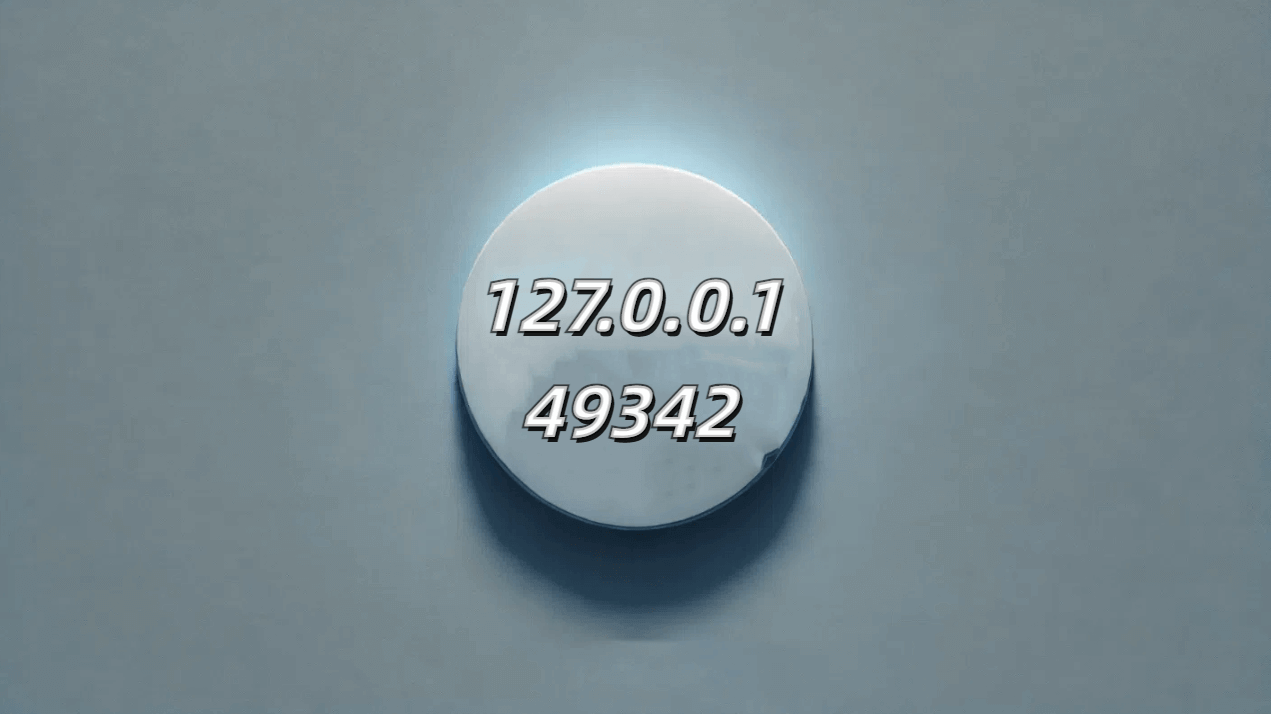127.0.0.1:49342: Meaning, Errors and Fixes

If you've stumbled upon "127.0.0.1:49342" and felt bewildered, you're not alone! This address, known as localhost, is crucial for running applications on your own computer, especially when paired with a port like 49342. In this blog post, we'll dive into what 127.0.0.1:49342 really does, why it's useful, and some of the common questions and issues people face with it. Whether you're setting up a server, debugging, or just curious about how your computer communicates with itself, understanding 127.0.0.1:49342 will give you a deeper insight into your network's inner workings.
What is 127.0.0.1:49342?
The address "127.0.0.1:49342" specifies a specific service or process running on your computer. The IP address "127.0.0.1" in this case refers to the localhost, which is a typical IP address used in computer networking to identify the machine you are now using. It allows software running on the same machine to communicate with each other.
The number "49342" after the colon represents the port number. Ports are like doors on your computer that allow different applications to listen for and send network information. Port 49342 is where a specific application or service listens for connections or sends data, but only within your local machine. This setup is often used for development purposes, testing, or to run local services without exposing them to the external network.
In summary, "127.0.0.1:49342" refers to a service listening on port 49342 on your own computer, not accessible from the external network, used for internal communications and processes.
What is the 127.0.0.1 address used for?
On your computer, the IP address "127.0.0.1" is mostly used as a testing ground for online apps and services. It lets developers run and test new software securely without risking exposure to the internet. It’s invaluable for ensuring everything works smoothly before going live.
Is 127.0.0.1 safe? Risks of 127.0.0.1:49342
Using "127.0.0.1" is typically safe since it doesn’t expose your computer to the external internet. However, even this secure environment isn’t without its risks. Applications on this address can still suffer from internal threats or misconfigurations, such as:

1. Unauthorized Access
If the application running on port 49342 is misconfigured or has vulnerabilities, it could potentially be accessed by other programs or users on the same machine, leading to unauthorized data access or manipulation.
2. Resource Consumption
Applications running on this port may consume significant system resources (CPU, memory), especially if they are not optimized or are running intensive processes. This can slow down or destabilize your system.
3. Security Vulnerabilities
If the software using port 49342 has security flaws, it could be exploited by malware or malicious software on your computer to gain more privileges or cause damage. Localhost isn't exposed directly to the internet, but malware on the device can interact with these services.
4. Port Conflicts
Multiple applications attempting to use the same port can lead to conflicts, causing services to fail to start or operate incorrectly. This is a common issue in development environments where various services are configured without proper port management.
5. Exposure Through Proxies or Misconfigurations
While 127.0.0.1 is designed to be a loopback interface, misconfigurations in network settings or proxies could accidentally expose local services to the network, leading to unintended access.(What Is Configure Proxy and How to Set Up)
Who can Access 127.0.0.1?
Only programs and services on your own computer can access "127.0.0.1". This address is not accessible from other devices on the network or the internet, which makes it secure for testing and internal communication between services on the same machine.
What is the IP address of the website 127.0.0.1?
The IP address "127.0.0.1" doesn’t belong to a "website" in the traditional sense but rather points to your own computer. It is used to set up and access servers locally. Any services you run on your computer that listen on this IP will be accessible only to you.

How to Solve Common Errors While Working with Port 49342
While working with port "49342", you may encounter issues such as service crashes, port conflicts, or firewall blocks. Here’s a breakdown of common issues and their resolutions:
1. Service Restart
Sometimes, the simplest fix is just to restart the service using the port. If the service hangs or crashes, a restart can clear the current state of the software and resolve minor glitches.
2. Port Conflict Resolution
Port conflicts occur when two services try to use the same port. To resolve this, you can change the port configuration for one of the services. Check the application settings or configuration files to assign a different port.
3. Firewall Configuration
If applications can't communicate through Port 49342, your firewall might be blocking it. You’ll need to access your firewall settings and create a rule that allows traffic through this port. Ensure to specify whether the rule applies to inbound or outbound traffic based on your needs.
4. Documentation Review
Always check the official documentation for any service or application using the port. The documentation might have specific configurations or settings recommended for avoiding common issues.
5. Port Monitoring Tools
Use tools like 'netstat' or 'tcpview' to monitor port usage and see which application is currently using Port 49342. This can help identify unauthorized usage or conflicts.
By addressing these errors, you can effectively troubleshoot and resolve issues related to Port 49342, ensuring smooth operations for your applications or services running on this port.


